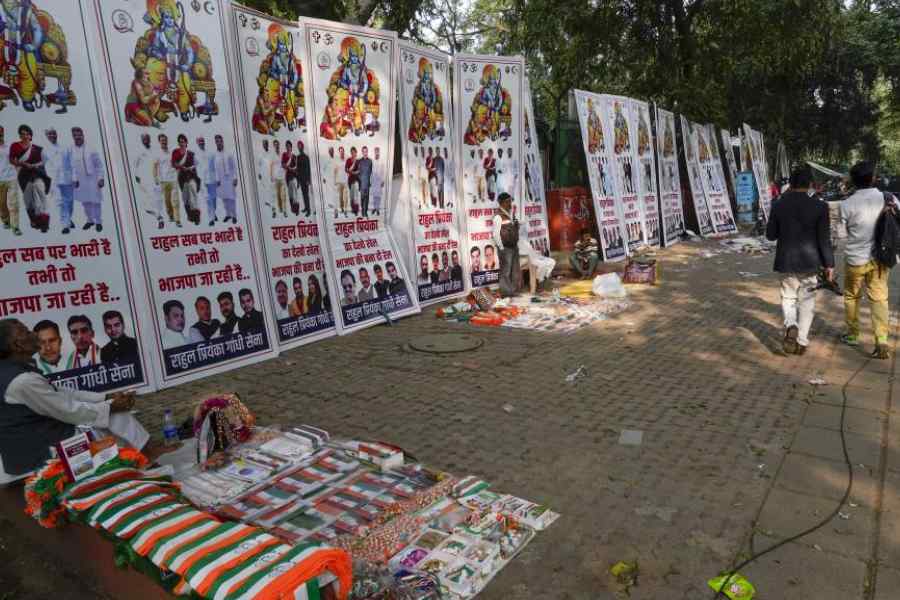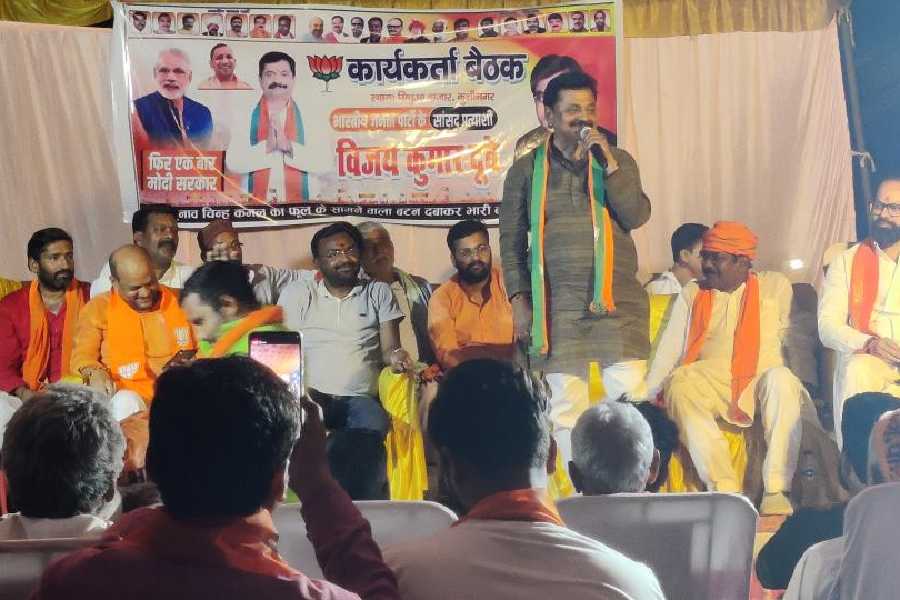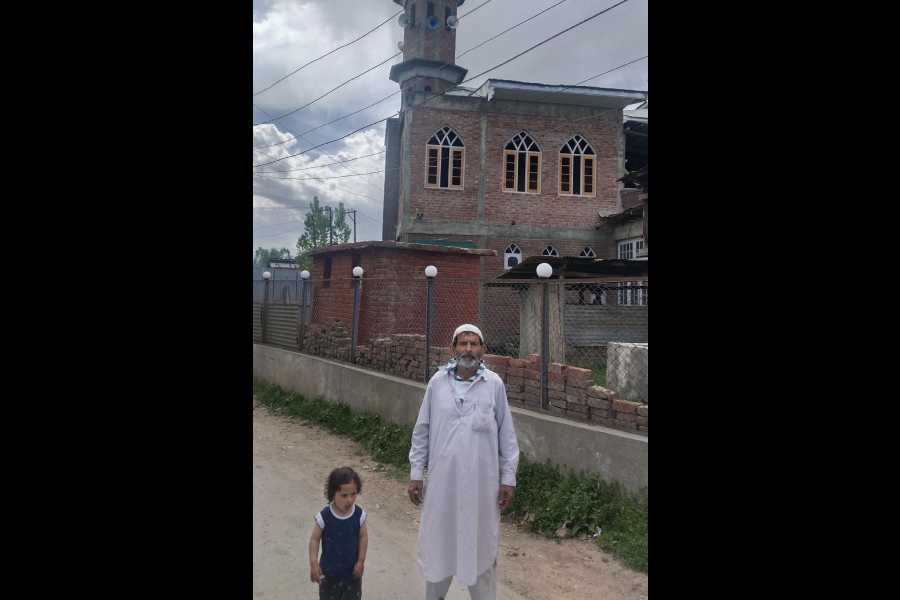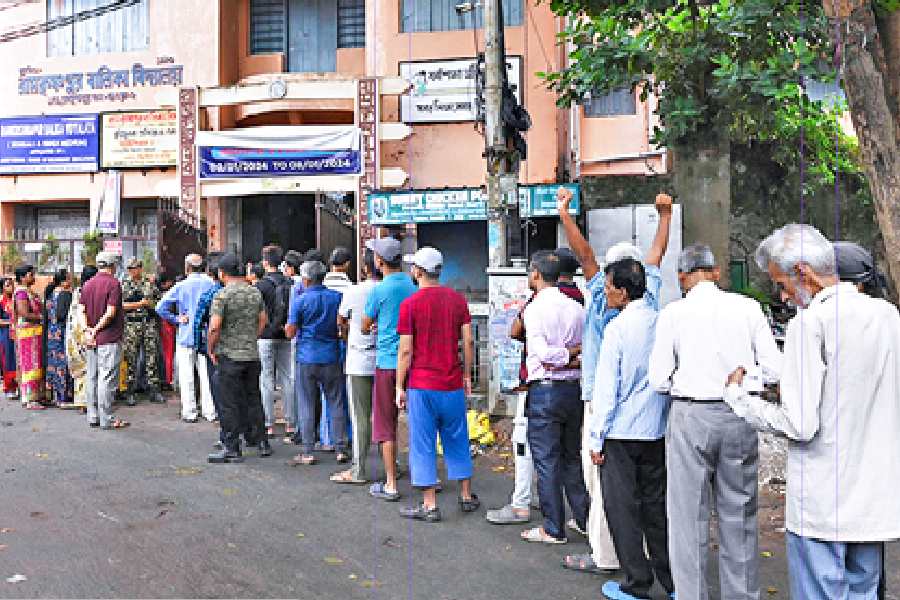The Bharatiya Janata Party’s talk of an ‘Opposition-mukt Bharat’ is not just empty rhetoric: it represents an ambition. All fascist outfits have this ambition, which is a fallout of their vision of what society should be. According to this vision, all relations between persons in society must be mediated through the ‘leader’; they must relate to one another by virtue of their relationship with the ‘leader’. It is the ‘leader’ who binds together a society that otherwise consists of atomised individuals. No social groupings among individuals, whether they are trade unions or cricket teams, that are independent of the ‘leader’ are tolerated for they represent an implicit challenge, and threat, to the ‘leader’.
The distrust of political parties, which are groupings at the level of the polity that are not just independent of the ‘leader’ but even nurse the desire to oust the ‘leader’, is, therefore, natural to the fascist mindset. This cult of the ‘leader’ is much more than a ‘personality cult’; it constitutes an inversion of the very concept of society whose existence is sought to be conceptually derived from the ‘leader’ and defined only with respect to him. It goes beyond Louis XIV’s “L’État, c’est Moi” because it is not confined only to the State, or the realm of the polity, but encompasses society as a whole. ‘Eine Volk, Eine Reich, Eine Fuehrer’ is the slogan that genuinely expresses this fascist mindset.
The fascist desideratum of an ‘Opposition-free’ polity can be achieved either through a wholesale suppression of the Opposition, which is not really feasible in today’s world, or through its progressive marginalisation in the electoral arena. A measure of the progress of the fascist project in the country therefore is the degree of marginalisation of the political Opposition. And on this criterion, the latest election results from the five states in India that went to the polls recently show that the advance towards fascism has been less smooth than one feared.
True, the BJP won three of these states, each of which had elected the Congress to power in 2018, and in that sense the results show a big setback for the Congress in the Hindi heartland, especially as the exit polls were showing a different and more favourable result for that party. What is crucial, however, is that the percentage of votes polled by the Congress in the three Hindi heartland states in 2023 is scarcely any lower than in 2018.
In Madhya Pradesh and Chhattisgarh, the percentage share of votes polled by the Congress has declined by 0.4% and 0.9%, respectively, between 2018 and 2023; in Rajasthan, it has increased by 0.1% (The Hindu, December, 4). The Congress has retained roughly 40% of the votes between these two dates, notwithstanding the enormous increase in the clout of the BJP during these five years and also the lack of grassroots organisation of the Congress and the perennial in-fighting which afflicts that party because the ideological commitment of some leaders is much weaker than personal ambitions.
The percentage of BJP votes has increased in each of these states, but almost entirely at the expense of ‘others’. Who these ‘others’ are (and they would be different in different states) and what led to their decline in each state has to be separately analysed. But the consistent commitment of voters, even in the Hindi heartland (that too in a region which constitutes the feudal core of the country and which was less exposed to the progressive influence of the anti-colonial struggle), to a national party opposed to the BJP and openly professing secularism (notwithstanding Kamal Nath’s opportunistic espousal of soft Hindutva) is significant. In fact, one can take heart from this commitment.
Not much should be read into these results with regard to the forthcoming 2024 parliamentary elections. The three states together have 65 Lok Sabha seats, of which the BJP had won 62 in the 2019 parliamentary elections, that too when the Congress had been elected to power in these states just a few months earlier, in 2018. This shows not only that Parliament and assembly elections can throw up vastly divergent results but also that any further scope for increase in the BJP’s tally from these states is virtually non-existent. It can only do worse, but not much better.
For the Congress, one lesson from these results is to firm up its alliance with the INDIA partners; had it done so, some of the ‘others’ vote might have come to the non-BJP alliance instead of the BJP. But in addition, it has to take a more forthright ideological position focussing on the conditions of the life of the people. The BJP’s strategy is to shift the discourse to issues around Hindutva; on the people’s conditions of life, its effort is to diffuse and empiricise issues into this or that concession it has given so that the overwhelming facts of deprivation and distress get obscured. Any secular alliance must highlight these facts and have an overarching agenda that can galvanise people, such as Indira Gandhi had done with her ‘garibi hatao’.
True, the failure of the Congress to retain Rajasthan despite significant welfare measures enacted there may be invoked against my argument; but given Rajasthan’s penchant for changing governments, the Congress’s retention of its vote share itself is creditable. Besides, a slogan to galvanise the people, such as, for instance, the institution of a set of universal, justiciable, fundamental economic rights, can have an impact on the ‘whole’ that is greater than its impact on the ‘parts’.
Prabhat Patnaik is Professor Emeritus, Centre for Economic Studies, Jawaharlal Nehru University, New Delhi










